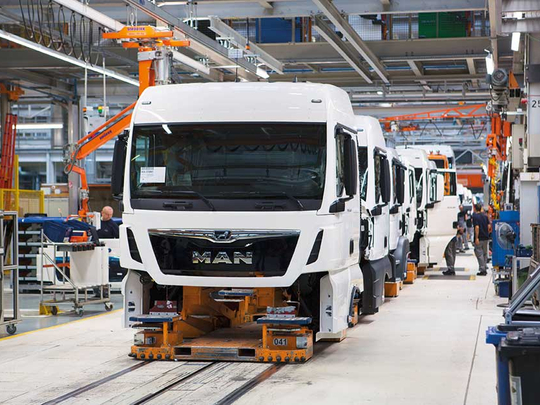
Frankfurt, Michigan: Volkswagen AG and Ford Motor Co are considering a strategic alliance to work together on a range of commercial vehicles, a move that would enable two of the world’s largest automakers to share the burden of meeting tougher environmental rules.
The potential alliance on several projects, including vans and other commercial vehicles, won’t lead to an exchange of equity or cross-ownership stakes, the companies said in a joint statement Tuesday. The automakers didn’t provide a timeline for when they hope to formalise their relationship, instead saying they “will provide updates and additional details as talks progress.”
Automakers across the globe are exploring ways to share expenses for developing light commercial vehicles, including electrified models, as cities including Paris and Shanghai push to improve air quality. The tightening restrictions come at the same time that demand is rising for delivery of goods due to increasing popularity of online shopping. Ford Chief Executive Officer Jim Hackett has his company on a “fitness” campaign to cut $25.5 billion in costs and is seeking partners along the way.
“This potential alliance with Volkswagen Group is another example of how we can become more fit as a business,” Hackett said in the statement. “We look forward to exploring with the Volkswagen team in the days ahead how we might work together to better serve the evolving needs of commercial vehicle customers.”
Ford is also cooperating with Deutsche Post AG on electric vans, with the carmaker providing chassis for the medium-duty vehicles to the German mail operator. Deutsche Post started developing a range of no-frills battery vehicles when it couldn’t find a suitable offer from established manufacturers.
While news of the alliance would “inevitably” spark speculation of a broader-scale cooperation or more, teaming up on vans probably won’t be much more than a series of joint projects, Bernstein analyst Max Warburton said in a note.
“Doing something in vans is very logical, especially given the likelihood that future light commercial vehicles may need to transition away from diesel to other power trains,” he said.
Speedy change
Thomas Sedran, Volkswagen’s head of strategy, said the alliance could “improve the competitiveness of both companies globally.”
“Markets and customer demand are changing at an incredible speed,” Sedran said. “Both companies have strong and complementary positions in different commercial vehicle segments.”
VW had cooperated for years with Daimler AG to produce vans, but the German peer ended the joint project several years ago. Eckhard Scholz, the head of VW’s light-commercial vehicle division, told Bloomberg News in October that the company was exploring ways to work together with other manufacturers. Evolving emissions rules were one factor prompting the talks, he said.












